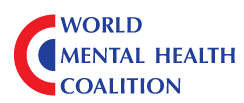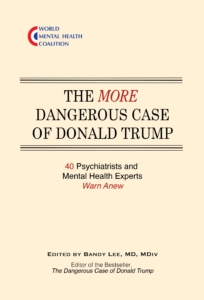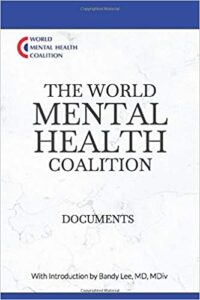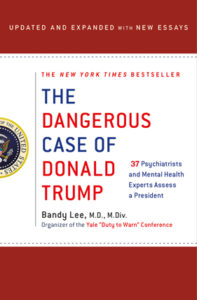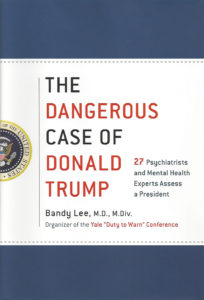Our Books
Witnessing Professionals Re-Examine the Danger Posed by Donald Trump
By Joshua Kendall
“It is dangerous to be right in matters on which the established authorities are wrong.”
Voltaire, Age of Louis XIV, 1751
In July, just as the Republicans nominated Donald Trump for President at their convention in Milwaukee, The New York Times Editorial Board ran a piece, “Trump’s First Term is a Warning,” which reviewed his track record of sociopathic behavior while in office—from his lies about crowd size on the day after his inauguration to his efforts to foment an insurrection nearly four years later. As the paper stressed, Trump “showed, over and over, how little respect he has for the Constitution and those who defend it.”
That a Trump presidency would pose a unique threat to the nation and the world is exactly what forensic psychiatrist Dr. Bandy Lee and her colleagues predicted in The Dangerous Case of Donald Trump: 27 Psychiatrists and Mental Health Professionals Assess a President, which came out seven years earlier. But tragically, in 2018, that same editorial board attacked their New York Times bestselling book and thereby largely succeeded in marginalizing their voices, arguing that the country does not need to hear “from psychiatrists relying on their professional credentials.”
A few weeks ago, the Times even briefly cited the work of Lee and her colleagues in a front-page article on Trump’s rapidly deteriorating mental state, but the effects of the earlier silencing by the Gray Lady remains. Given the high stakes in the upcoming election, Lee and her colleagues insist once again that they have an ethical duty to “bring our experience and knowledge to bear on what threatens us and what might renew us.” The World Mental Health Coalition—a public interest group of mental health experts headed by Lee—just published a follow-up book, The More Dangerous Case of Donald Trump: 40 Psychiatrists and Mental Health Experts Warn Anew, which includes many more renowned voices from the fields of psychiatry and psychology. This book appeared on the occasion of a conference devoted to Trump’s mental unfitness held last month at the National Press Club, which featured numerous talks by mental health experts and national security experts.
The main takeaway from this compelling collection of essays is that a second Trump presidency is likely to be much more devastating than the first. Several authors make the case that Trump suffers from serious mental impairments that feature narcissistic, sociopathic, psychopathic and paranoid symptoms. These conditions, which result in the behaviors Americans have witnessed time and time again ever since Trump descended from the golden escalator in 2015—a lack of empathy, lying, bullying and impulsivity—invariably get worse with unchecked power. Moreover, this time around, Trump—now 78 and with a positive family history of Alzheimer’s—is likely to develop incapacitating cognitive problems as well. As psychologist Vince Greenwood argues, based on Trump’s “meaningful decline in language functioning,” the former president already meets the criteria for “Mild Neurocognitive Disorder,” which in 50% of cases progresses to full-scale dementia within four years.
Regardless of which particular combination of mental conditions ends up driving Trump’s pathological behavior in the years to come, the key issue, as psychiatrist James Gilligan stresses, is his psychological dangerousness—“his ability and willingness to incite political violence and thus to replace democracy with dictatorship.” And what is particularly frightening about this defining trait of Trump is that he could well endanger America even if he loses the election—given that he once again might be compelled to resort to mob violence.
In casting aspersions on Lee’s 2017 book, The New York Times and various other mainstream news organizations have cited the Goldwater Rule, a 1973 addendum to the American Psychiatric Association’s code of ethics, which prohibits psychiatrists from commenting on the mental health of public figures. But as several authors in the new book write, this so-called ethical guideline does little to serve the public interest. In “The Goldwater Rule Holds No Water—But Carries the Water for Oppression,” psychiatrist Ravi Chandra maintains that it simply “infantilizes professionals and assumes they cannot assess the risks of offering professional opinions themselves.”
As America faces what appears to be its most perilous period since the Civil War, we can no longer afford to project the actual danger that Trump poses onto the nation’s leading mental health experts who have accurately described his disturbed mind for the past eight years. And we must now listen to everything that they have to say more carefully than ever.
—
Joshua Kendall has written for numerous newspapers and magazines, including The New York Times, The Wall Street Journal, The Boston Globe, The Los Angeles Times, BusinessWeek, Mother Jones and The Nation. For his excellence in reporting on psychiatry, he has received national journalism awards from both Mental Health America and the American Psychoanalytic Association.
The World Mental Health Coalition Documents: With Introduction by Bandy Lee, MD, MDiv Paperback
– August 20, 2020
The Dangerous Case of Donald Trump: 37 Psychiatrists and Mental Health Experts Assess a President – Updated and Expanded with New Essays (2019 Edition)
Learn more about Dr. Bandy Lee and the new authors of this book.
The Dangerous Case of Donald Trump: 27 Psychiatrists and Mental Health Experts Assess a President (2017 Edition)
Learn more about Dr. Bandy Lee and the original authors of this book.
